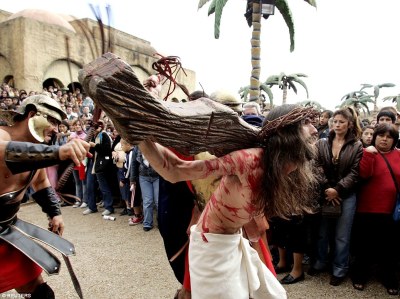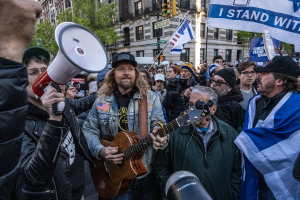Why is Good Friday 'good'? 5 things to know about the annual observance
Passion plays

A longstanding popular tradition of observing Good Friday has been the passion play, which is a public reenactment of the final hours of Jesus Christ, most notably the crucifixion.
Named after the traditional meaning of the word passion, which is suffering, passion plays could often involve hundreds of actors and were at their peak of popularity during the late Medieval Era.
However, concerns over the secularizing of the performances by Catholic authorities and the rise of the Protestant Reformation contributed to their decline in popularity.
They also had a controversial side, according to the New World Encyclopedia, as older versions of the passion play "placed blame squarely on the Jews for the death of Jesus."
"Some believe the plays resulted in a rise in anti-Jewish violence following performances," noted New World Encyclopedia. "The Roman Catholic Church of the twentieth century issued guidelines cautioning Christians to avoid negative stereotypes of Jews in depicting the events surrounding Jesus' life and death."
Passion plays are still performed in certain parts of the world, with one of the more famous productions being based in the German town of Oberammergau in the Bavarian Alps.
"According to tradition, the play has been presented every 10 years since 1634, in fulfillment of a vow made after the village was spared an epidemic of plague (shifting to decennial years in 1700), except in 1870 during the Franco-Prussian War and World War II, when religious plays were banned, and in 2020, because of the COVID-19 pandemic," noted Britannica.
"It remains an entirely local production, with villagers taking all the parts and singing in the chorus. Since 1930 roofed seats have protected the audience from the weather. The production runs from May through September."




























